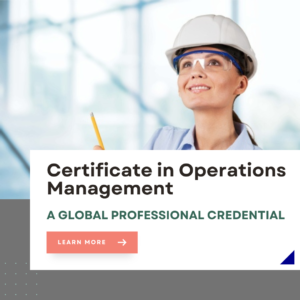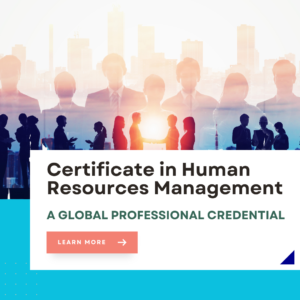Introduction to Indonesia
Indonesia, officially known as the Republic of Indonesia, is the world’s largest archipelagic state, consisting of over 17,000 islands that stretch across Southeast Asia and Oceania. The country shares land borders with Malaysia, Papua New Guinea, and Timor-Leste, and maritime boundaries with several nations, including Australia, the Philippines, and India. Indonesia’s vast territory, covering approximately 1.9 million square kilometers, makes it the 14th largest country in the world.
With a population of around 277 million people as of 2024, Indonesia ranks as the fourth most populous country globally, following China, India, and the United States.
Major Cities
Indonesia’s capital and largest city is Jakarta, a sprawling metropolis with over 10 million residents. Jakarta serves as the political, economic, and cultural hub of the country. Other major cities include:
- Surabaya (East Java) – Indonesia’s second-largest city and a key industrial and trade center.
- Bandung (West Java) – Known for its educational institutions and technology industry.
- Medan (North Sumatra) – A major commercial hub and gateway to western Indonesia.
The National Economy – Key Facts and Figures
Indonesia is classified as an emerging market and is the largest economy in Southeast Asia. It is a member of the G20 and is recognized for its stable growth and increasing role in the global economy.
Economic Performance
- GDP: Indonesia’s Gross Domestic Product (GDP) stood at approximately $1.4 trillion in 2023, making it the 16th largest economy in the world.
- Economic Growth: The economy has grown steadily, with annual GDP growth rates averaging between 4% and 6% over the past decade.
- Key Industries: The main sectors driving the economy include manufacturing, agriculture, services, mining, and digital technology.
- Exports: Indonesia is a major exporter of natural resources, including palm oil, coal, rubber, textiles, and electronics.
- Foreign Direct Investment (FDI): The country attracts significant FDI, particularly in sectors such as e-commerce, infrastructure, and renewable energy.
Future Growth Expectations for the Indonesian Economy
Indonesia’s economy is projected to continue its strong growth trajectory, driven by several key factors, including industrial expansion, digital transformation, and demographic advantages. The country’s GDP is expected to grow at an average rate of 5% to 6% annually over the next decade, placing it among the fastest-growing economies in the world.
The Indonesian government’s long-term vision, outlined in the Vision 2045 strategy, aims to transform Indonesia into a high-income country by the country’s centennial in 2045 (the 4th largest economy in the world).
One of the primary drivers of Indonesia’s future growth is infrastructure development. The government is investing heavily in roads, ports, airports, and digital infrastructure to enhance connectivity across the archipelago. The Nusantara project, which involves relocating the capital from Jakarta to a newly planned city in East Kalimantan, is expected to generate significant economic activity and investment in real estate, construction, and government services.
Additionally, digital transformation and the rise of e-commerce will play a crucial role in shaping Indonesia’s economic future. With over 200 million internet users, Indonesia is Southeast Asia’s largest digital economy.
The rapid expansion of fintech, e-commerce, and digital banking is expected to drive financial inclusion and boost consumer spending. Companies such as Gojek, Tokopedia, and Bukalapak exemplify Indonesia’s growing startup ecosystem, attracting both local and international investment.
Indonesia’s young and growing workforce is another significant advantage. With more than 50% of the population under the age of 30, the country has a dynamic labor market that can support industrial expansion, innovation, and entrepreneurship.
However, ensuring that this workforce is equipped with the right skills through education and vocational training will be essential for sustaining long-term growth.
Challenges and Opportunities
Despite its promising outlook, Indonesia faces challenges such as income inequality, environmental concerns, and regulatory complexities. Addressing these issues through sustainable development policies and governance reforms will be key to maintaining economic momentum. Overall, Indonesia is well-positioned to emerge as a regional powerhouse and a key player in the global economy in the coming decades.
Career Opportunities for Managers and Professionals in Indonesia
As Indonesia continues its economic transformation and integration into the global market, career opportunities for skilled managers and professionals have expanded significantly. With the rise of multinational corporations, local conglomerates, startups, and government-linked enterprises, there is growing demand for leadership talent in key sectors such as finance, technology, manufacturing, energy, logistics, and education.
High-Demand Sectors and Roles
1. Finance and Banking
As Indonesia’s financial services industry matures, there is robust demand for professionals in investment banking, financial planning, and risk management. Example Roles and Indicative Salaries:
- Chief Financial Officer (CFO): IDR 100–150 million/month.
- Investment Analyst (mid-level): IDR 25–35 million/month.
- Corporate Banker (senior): IDR 40–60 million/month
2. Information and Communication Technology (ICT)
Indonesia’s fast-growing digital economy is fueling demand for IT managers, data analysts, digital marketing professionals, and cybersecurity experts. Example Roles and Indicative Salaries:
- IT Director: IDR 80–120 million/month
- Digital Marketing Manager: IDR 25–45 million/month
- Data Analyst (mid-level): IDR 15–30 million/month
3. Manufacturing and Supply Chain
As the government promotes industrialization, experienced managers in production, logistics, and procurement are highly sought after. Example Roles and Indicative Salaries:
- Operations Manager: IDR 30–50 million/month
- Supply Chain Director: IDR 60–100 million/month
- Quality Assurance Manager: IDR 25–35 million/month
4. Energy and Infrastructure
Indonesia’s natural resource wealth and infrastructure boom provide lucrative opportunities in project management, engineering leadership, and environmental compliance. Example Roles and Indicative Salaries:
- Project Director (Energy/Construction): IDR 90–130 million/month
- Environmental Compliance Manager: IDR 30–45 million/month
5. Healthcare and Pharmaceuticals
The growth of private healthcare and biotech industries has increased demand for executives with healthcare operations, regulatory, and R&D expertise. Example Roles and Indicative Salaries:
- Hospital Administrator: IDR 35–60 million/month
- Regulatory Affairs Manager (Pharma): IDR 25–40 million/month
Education in Indonesia
Indonesia has over 4,500 higher education institutions, including universities, polytechnics, and business schools. Leading universities include:
- University of Indonesia (UI) – The country’s top-ranked university, offering internationally recognized business programs.
- Bandung Institute of Technology (ITB) – A leader in business and technology education.
- Gadjah Mada University (UGM) – Known for its strong focus on management and public administration.
- Bina Nusantara University (BINUS) – Specializing in digital business and entrepreneurship education.
Demand for Management Training and Education in Indonesia
With the rapid growth of Indonesia’s economy, there is an increasing need for well-trained business leaders and managers. Key factors driving the demand for management education include:
- Economic Growth & Industrialization: As businesses expand, there is a higher need for skilled managers in sectors such as banking,
- Global Competitiveness: As Indonesia integrates more with the global economy, multinational companies require employees with international business acumen.
- Government Initiatives: Policies promoting higher education and vocational training have boosted the demand for business-related courses.
- Corporate Training Needs: Many firms invest in executive education and leadership training to improve corporate performance.
Global Management Academy Indonesia
Global offers very wide range of business management training in Indonesia. Learn more about developing your career in management in Indonesia – click on the city links below: —->
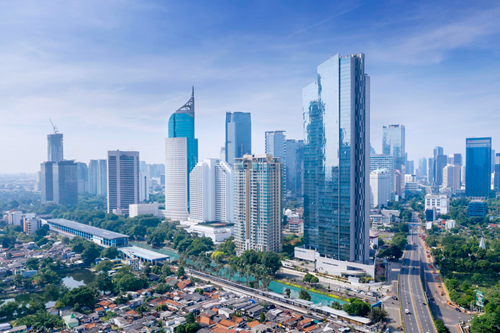
Management Training Jakarta
View Popular Management Courses in Jakarta
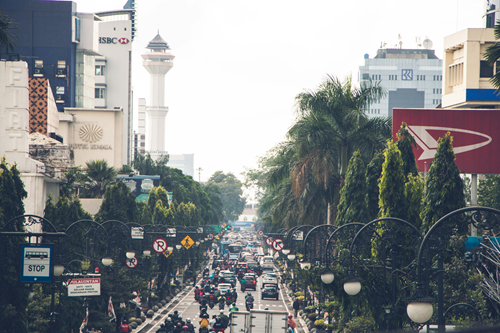
Management Training Bandung
View Popular Management Courses in Bandung
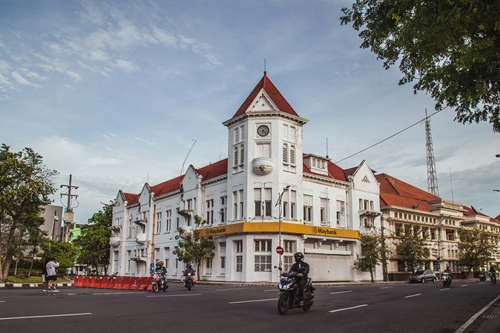
Management Training Surabaya
View Popular Management Courses in Surabaya
Key Features of Global Courses in Indonesia
Career Focused Certifications
Develop your skills in specific profession-focused Certificate credential programs (such as Finance, Marketing, Operations Management etc,), and internationally recognized Management Qualifications offering Bachelor and MBA level alternative certifications which enable rapid career progression.
Best Practice Online Learning
All learning with Global Management Academy is delivered online and on-demand through the Global E-Learning Portals in your country. Global uses best practice e-learning to enables busy professionals to advance careers online and throughout your career in management.
Live Courses Calendar in your City
Prefer classroom learning? - Global courses may also be available in your city in combined classroom and online learning Join your industry peers in your region to develop your expertise, and complete your online exams to earn your Global and GIAM Certifications.
Digital Credentials
On completion you will receive Global Digital Professional Credentials (Certificate, Badge and Learning Transcripts).
our credentials are accessed on the blockchain secure Credential.net platform and you can share your achievements on social media, and with current and prospective employers.
Global Management Certifications
A GMA Management Credential provides verifiable recognition of your knowledge and skills to lead and manage people and business activities at your current and future levels of management as you progress your career.
Global Professional Credentials
A Global Management Academy Professional Credential provides recognition and verification of your skills and knowledge in a key career skill set. Select your Level of Management and the Skill Sets you need to develop to fast track your career.
FAQ
Got a Question? We're here to help!
A Management Credential from Global Management Academy is awarded for completion of a series of courses across a range of Management Competencies (based on the G-IAM) internationally recognized competency framework.
Candidates first enrol in their chosen level of management, and on completion of a set number of courses qualify for Management Credentials.
A Global Management Academy Professional Credential is awarded for completion of a series of courses within a specific business or management skill set.
On completion of a set number of courses, candidates will qualify for the Professional Management Credentials.
A Global Management Academy Digital credential is the acknowledgement that you have invested time in developing your skills. Global Digital credentials comprise digital badges and certificates, and the technology to promote your achievements, and showcase your knowledge and skills across social media platforms, and with your employer and recruitment platforms.
Global credentials are verifiable using secure blockchain technologies.
On completion of all Global courses, you will be able to download and print a completion certificate. The Certificate will also detail your acquired CPD hours from the course of study.
On completion of your Management Credential Program, you will recieve Digital Certification and a Digital Badge from Global Management Academy on the Accredible.net Blockchain verified digital certification platform. You will be able to share you achievements on multiple social media and career sites.
Learners are free to complete their learning at their own pace. On average, learners take 2 to 3 months to complete a Certificate Program, up to 5 months to complete a Diploma and up to 8 months to complete an Advanced Diploma.
Assessment in GMA Credential programs takes the form of Online-quizzes (normally 3 in each course). Each quiz has a pass mark of 70% and you can take the quizzes as many times as you wish.
All Global Management Academy courses and programs are delivered through Online Learning through the Global E-Learning Portal. Each course comprises:
- Online Lectures and interactive learning
- Online Videos
- Online Quizzes
- Downloadable Learning Manuals (80 pages +)
- Additional downloadable workbooks, articles, and case studies.
Each course in the Global Academy carries a number of credits, which demonstrate the amount of study time you have put into your learning. 1 credit is equal to 10 hours of learning. Therefore, if a course has 2 credits, it will take approximately 20 hours of study to complete.
In addition to the online learning, you will have access to downloadable learning manuals and associated case studies, workbooks and management resources for each course.
You will receive continuous email and phone support from your tutor throughout your program.
YES! Your membership package includes lifetime access to any Digital Credentials you achieve, even if you have ended your Academy subscription.
If you are not satisfied with your Academy within the first 14 days of purchase, we will refund your money (no questions asked).






